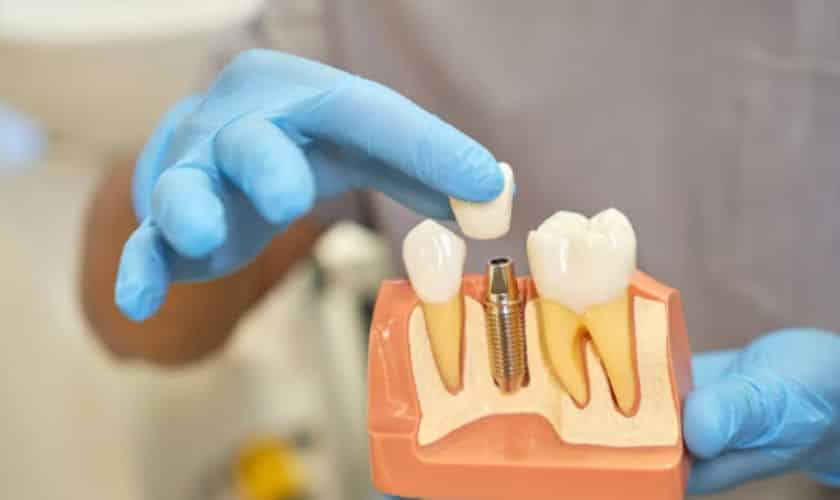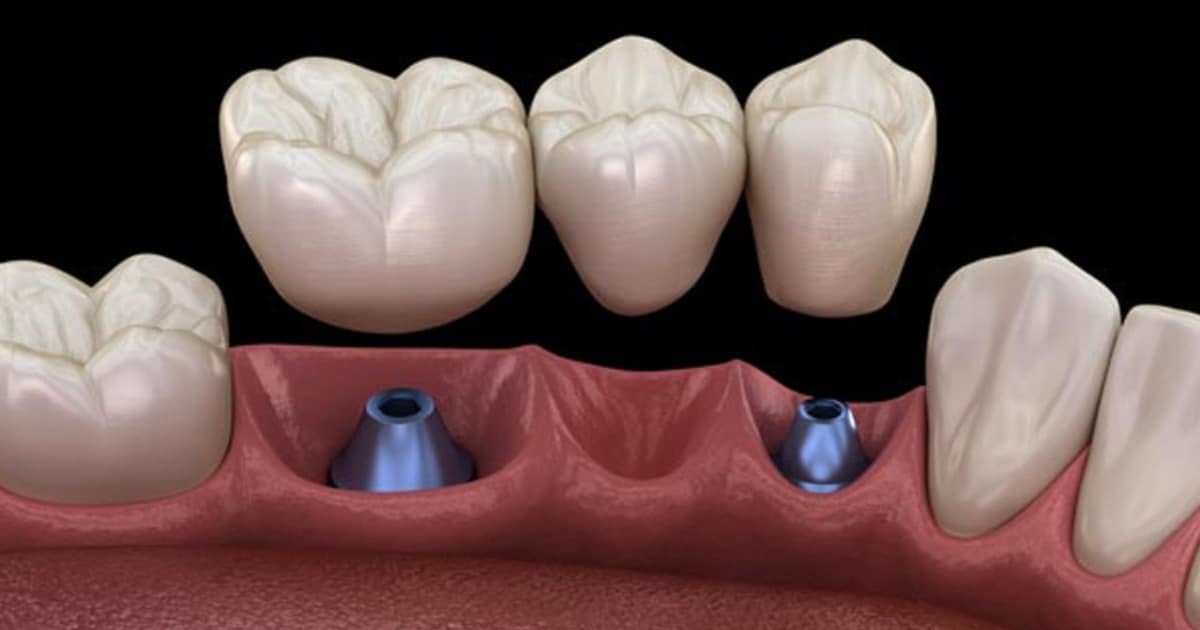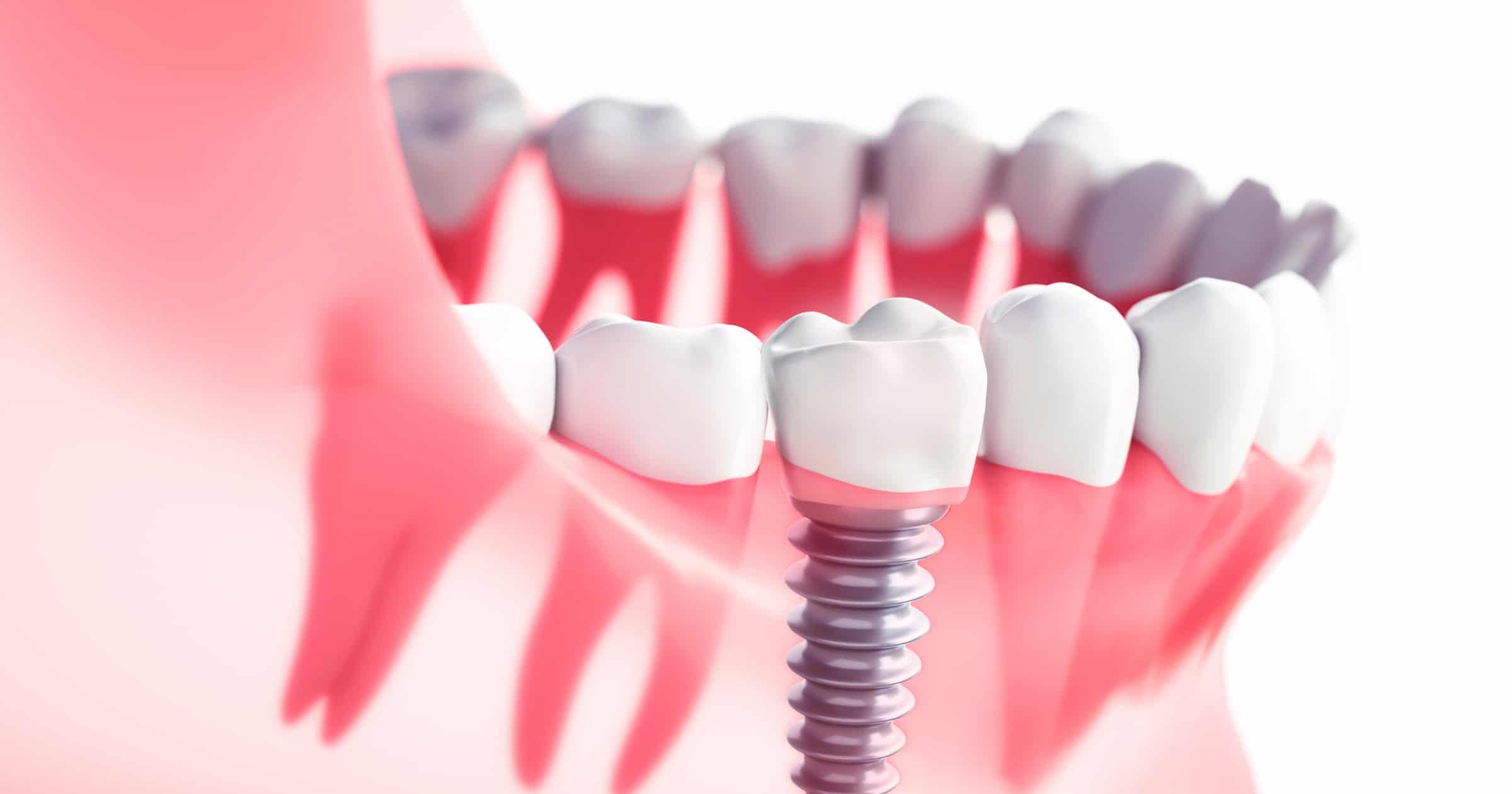
Are you tired of feeling self-conscious about missing teeth or uncomfortable dentures? Dental implants may be the solution to your oral health concerns. Not only do dental implants provide a natural-looking and long-lasting replacement for missing teeth, but they also offer benefits that go beyond just aesthetics. In this blog post, we’ll dive into what dental implants are, their different types, how to choose the right implant for you, and what to expect after treatment. We’ll also discuss common oral health concerns related to dental implants and how to address them. So sit back and get ready to learn everything you need to know about dental implants!
What are dental implants?
- Dental implants are artificial tooth roots that provide a permanent base for replacement teeth. They are designed to look and function like natural teeth, allowing you to eat, speak and smile with confidence. The implant itself is made of titanium, which is biocompatible with human bone tissue.
- The procedure involves surgically placing the implant into the jawbone where it acts as an anchor for a dental crown or bridge. After the implant has fully integrated with the bone over several months through a process called osseointegration, an abutment is attached to connect the implant to the replacement tooth.
- Unlike traditional dentures or bridges, dental implants do not require support from adjacent teeth and can prevent further deterioration of your remaining natural teeth. Additionally, because they fuse with your jawbone they provide stability and preserve facial structure.
- Dental implants offer many advantages over other forms of tooth replacement options while providing patients with long-term solutions for missing teeth.

Types of Dental Implants
- When it comes to dental implants, there are several types available. The most common type is an endosteal implant that is placed directly into the jawbone. This type of implant has a screw-like shape and is made of titanium, which allows for easy integration with the surrounding bone tissue.
- Another type of dental implant is the subperiosteal implant which sits on top of the jawbone but under the gum line. This type of implant typically uses a metal framework to support a porcelain crown or bridge.
- Zygomatic implants are another option for those who have insufficient bone density in their upper jaw area. These implants anchor into the cheekbone instead and provide stability without needing additional bone grafting procedures.
- Mini-dental implants are smaller versions of traditional endosteal implants used primarily to stabilize dentures or as temporary anchorage during orthodontic treatment.
- Each patient’s unique situation will determine which type of dental implant may be best suited for them. It’s important to discuss all options with your dentist before making any decisions about your oral health care needs.
Benefits of Dental Implants
- Dental implants have become an increasingly popular option for those missing teeth or looking to improve their smile. There are several benefits of dental implants that make them a worthwhile investment.
- Firstly, dental implants look and feel like natural teeth. They blend seamlessly with your existing teeth, providing a more natural appearance than traditional dentures or bridges. This can give you the confidence to laugh, speak and eat without worrying about your smile.
- Additionally, dental implants are a long-lasting solution to tooth loss. Unlike dentures or bridges which may need replacing every few years, dental implants can last upwards of 20 years with proper care and maintenance.
- Another benefit is improved oral health. Dental implants do not require adjacent healthy teeth to be ground down as traditional bridges do. This preserves the surrounding teeth and promotes better overall oral health.
- The benefits of dental implants go beyond simply improving aesthetics; they offer an effective, long-term solution for restoring function and promoting good oral health.
How Long will Dental Implants Last?
- One of the biggest concerns for people considering dental implants is how long they will last. The good news is that with proper care and maintenance, dental implants can last a lifetime!
- The first key factor in determining the lifespan of your implant is the quality of the implant itself. High-quality materials such as titanium are known to be strong and durable, ensuring long-term stability.
- Another important factor that contributes to longevity is oral hygiene. Regular brushing and flossing are essential to keep your implant clean and free from bacteria or infection.
- Additionally, it’s crucial to visit your dentist regularly for check-ups and professional cleanings. This helps identify any potential issues early on before they become more serious problems.
- While there isn’t an exact timeframe for how long dental implants will last, taking good care of them can ensure their longevity well into the future.
What to do if you experience problems with your dental implant?
- Dental implants are an excellent long-term solution for missing teeth, but like any dental procedure, complications can arise. If you experience problems with your dental implant, you should contact your dentist or oral surgeon immediately.
- One potential issue is implant failure. This occurs when the implant does not fuse properly to the jawbone or becomes infected. Symptoms of implant failure include pain around the implant site and difficulty chewing. In some cases, a new implant may need to be placed.
- Another problem that may occur is peri-implantitis, which is inflammation around the gum line of the implanted tooth. This can cause discomfort and even lead to bone loss if left untreated. Your dentist may recommend antibiotics or deep cleaning treatments to address this issue.
- In rare cases, nerve damage can also occur during the placement of a dental implant. Symptoms include tingling or numbness in the lips and tongue area. If this happens, consult with your dentist immediately for appropriate treatment options.
- In summary, it’s essential to communicate any concerns about your dental implants with your dentist as soon as possible so they can provide prompt care and prevent further complications from arising.
Oral Health Concerns and Dental Implants
- Oral health concerns are always a top priority for dental patients, and those considering dental implants may have some questions. One of the biggest concerns is whether or not the implant will affect their oral hygiene routine.
- Fortunately, dental implants can actually improve your oral health by preventing bone loss and supporting adjacent teeth. However, it’s important to keep up with regular brushing and flossing to avoid gum disease which could lead to implant failure.
- Another concern is the possibility of infection after surgery. While this risk exists with any surgical procedure, taking proper care of your implant site during the healing process can minimize this risk significantly.
- In addition, certain medical conditions such as diabetes or autoimmune diseases may require special considerations when getting a dental implant. Your dentist will be able to evaluate these factors and determine if an implant is right for you.
- While there are potential oral health concerns associated with dental implants, they can be minimized through proper care and evaluation by a qualified professional.
How to Choose the Right Dental Implant?
- Choosing the right dental implant is crucial for a successful and long-lasting tooth replacement. The first step in this process is to consult with your dentist or oral surgeon to determine which type of implant will work best for your unique situation.
- There are several factors to consider when choosing a dental implant, including the location of the missing tooth, bone density in that area, and overall oral health. Your dentist may also take into account any underlying medical conditions you have that could affect the success of your implant.
- Once these factors have been evaluated, you can begin exploring different types of implants. Options include traditional endosteal implants that are placed directly into the jawbone, as well as subperiosteal implants that sit on top of the bone but underneath the gums.
- Other considerations when selecting an implant may include size and shape options based on your individual anatomy and personal preferences. It’s important to ask questions about each option so you can make an informed decision about what will work best for you.
- In addition to choosing an appropriate type of dental implant, it’s also essential to select a qualified and experienced professional who can perform the procedure safely and effectively. Be sure to research potential providers thoroughly before making a final decision.
What to Expect After Treatment?
- After undergoing dental implant treatment, you can expect to have a fully restored smile and improved oral health. However, it’s important to remember that the success of your implant will depend on proper care and maintenance.
- Following the procedure, your dentist will provide specific instructions for aftercare and suggest follow-up appointments. It’s essential to attend these appointments as they allow your dentist to monitor the healing process and ensure no complications arise.
- In terms of everyday care, make sure to brush twice daily and floss regularly around the implant area. Avoid hard foods or anything else that could damage or dislodge the implant. With proper care, dental implants can last for decades without needing replacement.
- If you’re interested in dental implants as an option for restoring missing teeth or improving your oral health, talk with a qualified dentist about whether this is right for you. They’ll be able to guide you through every step of the process, from choosing the right type of implant to taking steps towards long-term maintenance.
Source: Gebrüder Betz Medical Animation
Investing in dental implants isn’t just investing in your smile; it’s investing in yourself! By taking control of your oral health with modern technology like dental implants, you can expect a brighter future full of confidence and comfort – free from worrying about damaged or missing teeth!


